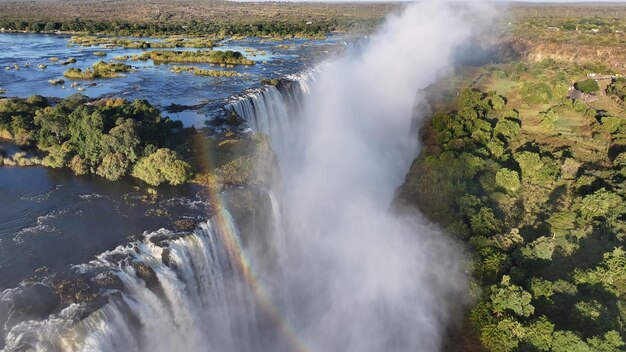Zambia is known for its stunning landscapes, rich wildlife, and vibrant culture, making it a prime destination for tourists seeking adventure and natural beauty. To enhance its tourism potential, the Zambian government, in collaboration with various stakeholders, has initiated several development projects aimed at improving infrastructure, promoting attractions, and boosting the overall tourism experience. Here are ten key tourism development projects currently shaping the future of tourism in Zambia:
1. Kafue National Park Infrastructure Development
Kafue National Park, one of the largest national parks in Africa, is undergoing significant infrastructure upgrades. The project focuses on improving roads, building new lodges, and enhancing visitor facilities. These developments aim to attract more tourists to the park, showcasing its diverse wildlife, including elephants, lions, and the rare Kafue lechwe.
2. Victoria Falls Tourism Development Initiative
The Victoria Falls area, a UNESCO World Heritage Site, is receiving attention through various projects aimed at enhancing tourism. These include the construction of new hotels, improved access roads, and the establishment of visitor centers. The initiative aims to improve the overall experience for tourists while promoting sustainable tourism practices in the region.
3. Luangwa Valley Conservation and Tourism Initiative
The Luangwa Valley is known for its rich wildlife and unique ecosystems. The Conservation and Tourism Initiative focuses on promoting eco-tourism by developing sustainable lodges and camps that emphasize wildlife conservation. The project also includes community engagement efforts to ensure local communities benefit from tourism activities.
4. Zambezi River Cruise Development
To capitalize on the natural beauty of the Zambezi River, this project aims to develop a range of river cruise options for tourists. The initiative includes the construction of docking facilities, the introduction of luxury cruise vessels, and the promotion of various water-based activities, such as fishing and kayaking, enhancing the appeal of the river as a tourism attraction.
5. National Parks Tourism Promotion Campaign
This campaign aims to promote Zambia’s national parks as key tourism destinations. The initiative includes marketing efforts, the development of promotional materials, and collaborations with tour operators to create attractive packages for tourists. By highlighting the unique features of each national park, the campaign seeks to increase visitor numbers and enhance the overall tourism experience.
6. Chongwe River Lodge Expansion
The Chongwe River Lodge, located near Lower Zambezi National Park, is undergoing an expansion project to accommodate more visitors. The project includes building additional luxury tented accommodations and enhancing existing facilities. This expansion aims to attract high-end travelers and provide a unique experience in a stunning natural setting.
7. Copperbelt Tourism Development Project
The Copperbelt region, known for its mining history, is focusing on diversifying its economy through tourism development. The project includes the promotion of cultural heritage sites, eco-tourism activities, and the establishment of tourism circuits that connect various attractions in the region. This initiative aims to create new job opportunities and boost local economies through tourism.
8. Wildlife Conservation and Eco-Tourism Training Program
This initiative focuses on training local communities in wildlife conservation and eco-tourism management. The program includes workshops and capacity-building sessions aimed at equipping community members with skills to participate in eco-tourism ventures. By promoting community involvement, the project seeks to ensure sustainable tourism practices while protecting Zambia’s wildlife.
9. Cultural Heritage Sites Development
Zambia is rich in cultural heritage, with numerous historical sites and artifacts. The Cultural Heritage Sites Development project aims to restore and promote these sites, such as the Kalambo Falls and the ancient rock paintings in the North-Western Province. The initiative includes the establishment of visitor centers and educational programs to raise awareness about Zambia’s cultural history.
10. Smart Tourism Initiative
In response to the growing trend of technology in tourism, Zambia is implementing a Smart Tourism Initiative. This project focuses on enhancing digital infrastructure, promoting online booking systems, and utilizing social media for marketing. By adopting innovative technologies, Zambia aims to improve the visitor experience and attract a tech-savvy generation of travelers.
Zambia’s commitment to developing its tourism sector is evident in these key projects, which aim to enhance infrastructure, promote eco-tourism, and preserve cultural heritage. By investing in these initiatives, Zambia is not only boosting its economy but also ensuring sustainable practices that will benefit future generations. As these projects come to fruition, Zambia is set to emerge as a premier tourist destination in Africa, offering unforgettable experiences to visitors from around the world.






